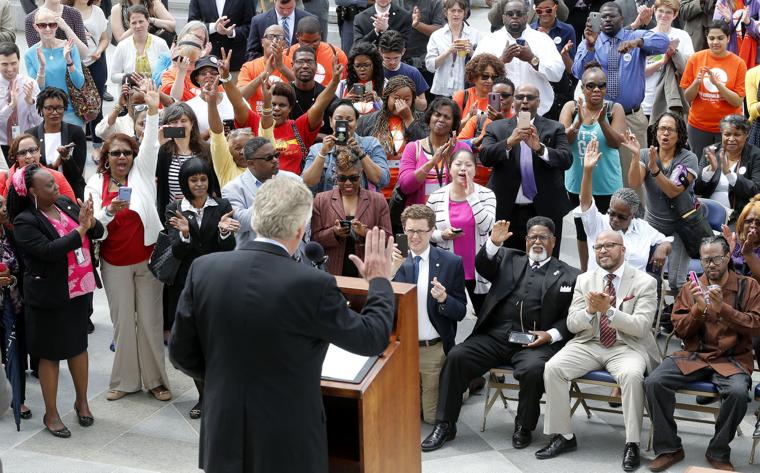
Now more than ever, states are on the frontlines in defending our democracy and fighting for the soul of our country. With this Kavanaugh confirmation, it’s clear that our national level system of checks and balances is compromised. We’ll fight like hell the next 31 days to try to re-balance the scale in Congress, but I’ve said it before, and I’ll say it again. November is not the finish line. It’s never the finish line.
We need to invest in building power in states so that elected officials at all levels and everywhere can and will be held accountable. Just look at the role that the Alaskan Native community played in Murkowski’s decision to vote against Kavanaugh’s confirmation. And we have to stop making excuses for not investing more in states – they’re too blue, they’re too red, it’ll take too long, there’s not enough capacity…the list goes on. Let’s build that capacity.
In 2016, Virginia was the only southern state to go for Hillary Clinton. That same year, across the state, in every locality, Virginians handedly rejected a right to work amendment that was on the ballot. A year later, Democrats won all three statewide seats and flipped 15 House seats, electing the most diverse freshmen class ever. And everywhere I go, people ask me how that wave was possible. What’s the silver bullet?
Let me tell you a secret. There is no silver bullet. Virginia is where it is today, not just because of the demographic shifts or a 45 backlash, but because of the organizing, advocacy, communications and voter engagement infrastructure that was built over the last decade, through the hard work of state and local organizations and other stakeholders with deep commitments to our state.
And I’m proud to say that New Virginia Majorityplayed a role in that sea of change. It wouldn’t have been possible for us if someone didn’t believe in our grand experiment. We were founded 11 years ago because someone believed in our vision – that a new Virginia and a new South was possible. With a $50,000 grant and a guiding philosophy of “fail fast” (let’s be honest – I had no clue what I was doing when we started this thing), we have built our organization into the largest POC-led civic engagement organization in Virginia. And we’re winning.
We’re not alone. Across the country, strong state-based organizations exist and are being built -in southern states like Georgia, Florida, Texas; midwestern states like Ohio, Minnesota, Missouri; in the southwest in Arizona, New Mexico and Nevada. I could go on and on. Invest in states. Invest in these groups. We’re on the frontlines. And we’re ready to fight. Who’s with us?
(Photo Credit: New York Times / Chet Strange)


